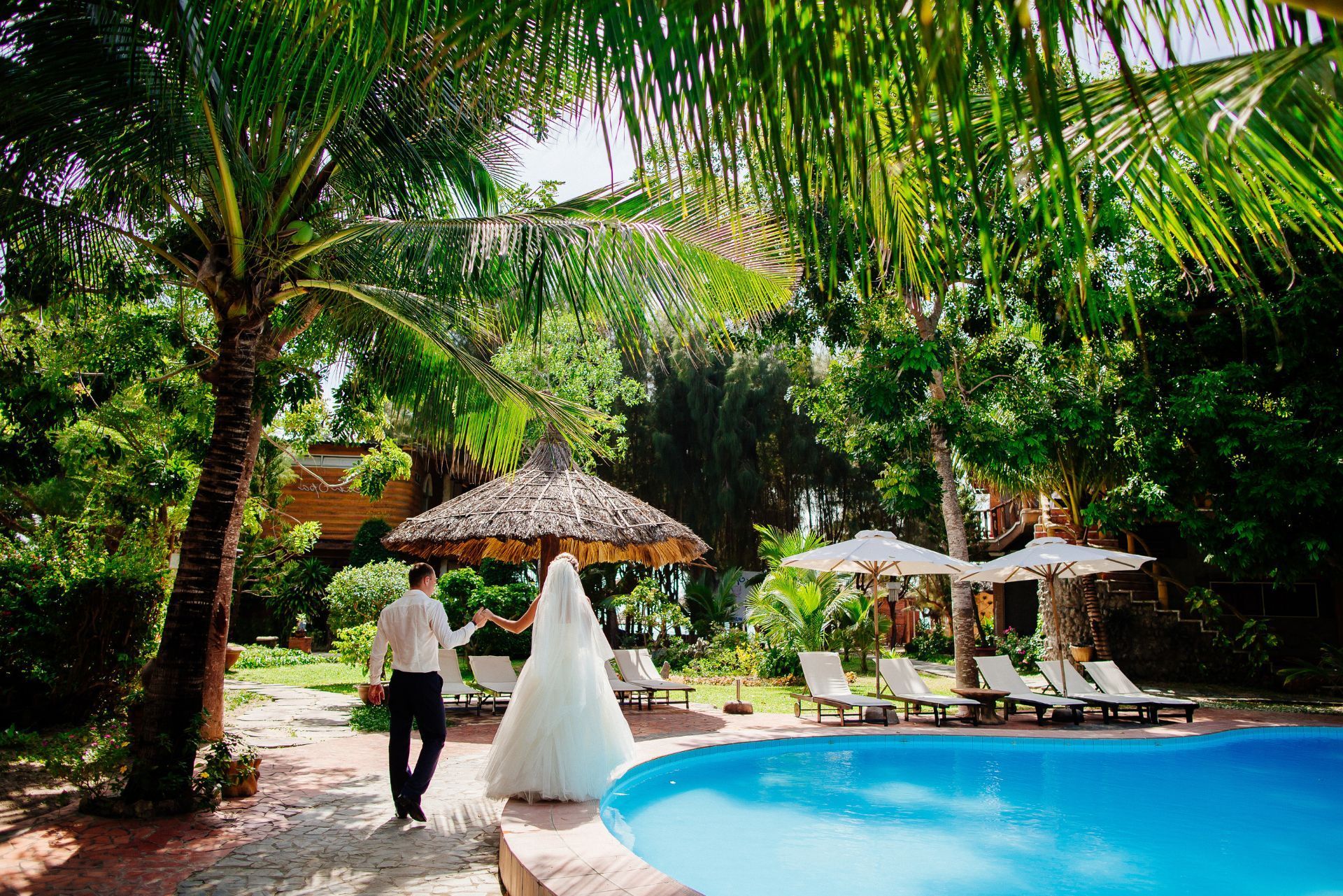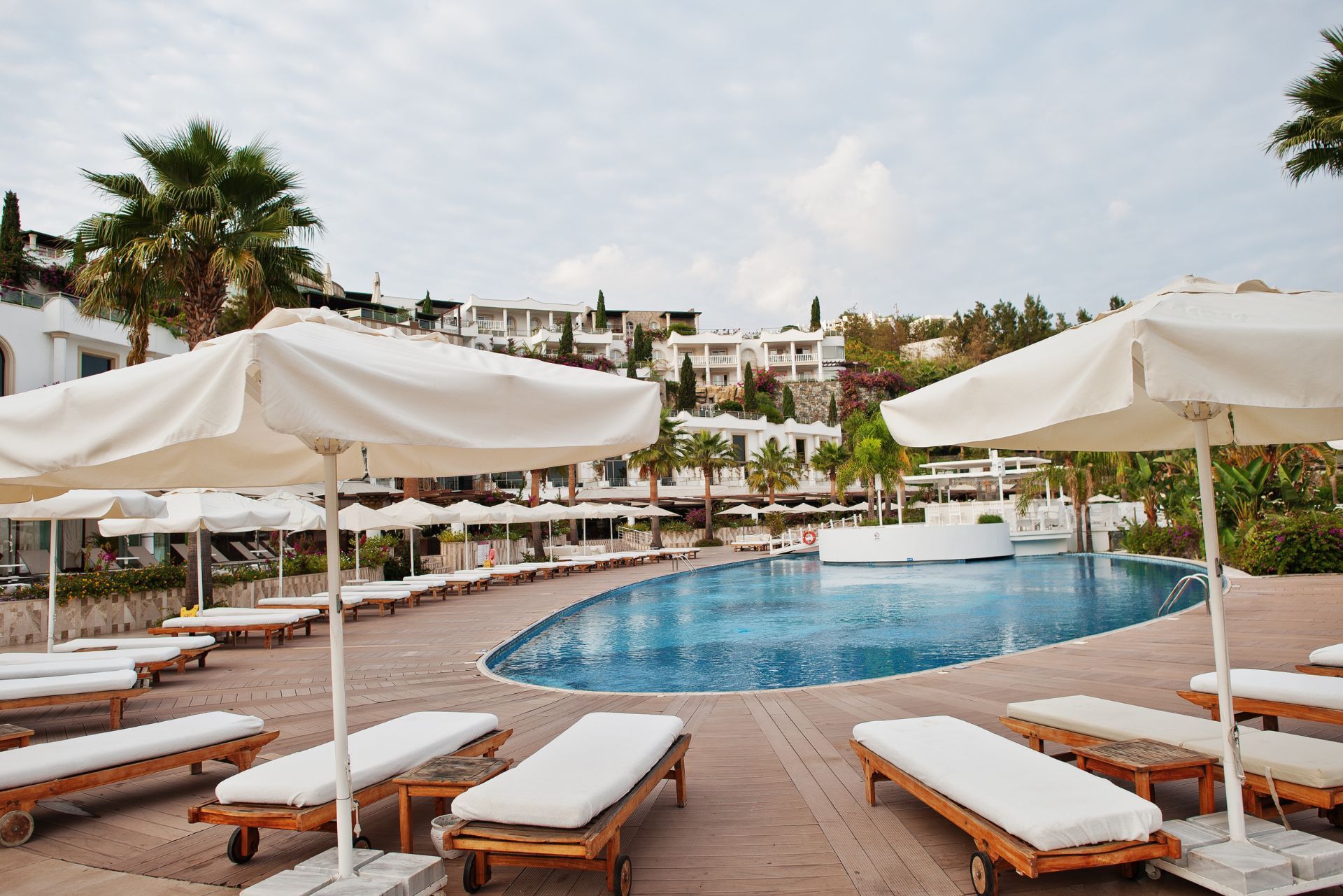Top 3 Recommended Policies

Operating a luxury hotel or resort involves managing a complex array of risks, from property damage and liability claims to emerging environmental concerns. With the global luxury hotel market projected to reach $201.37 billion by 2030, growing steadily at a 7.56% CAGR, securing the right insurance coverage is more critical than ever for industry stakeholders looking to protect their investments and maintain operational resilience. This comprehensive guide explores the essentials of luxury hotel and resort insurance, highlighting key trends, challenges, and strategic considerations for hoteliers and resort operators alike. For a deeper look into the expanding luxury resort market, Mordor Intelligence offers valuable insights on market growth and dynamics.
Understanding the Unique Risks Facing Luxury Hotels and Resorts
Luxury hotels and resorts operate in a high-stakes environment where the expectations for guest experience and service quality are exceptionally high. This elevates the potential financial impact of any disruption, whether from natural disasters, accidents, or operational failures. Unlike typical commercial properties, luxury accommodations often feature bespoke architecture, high-end furnishings, and extensive amenities, all of which increase replacement costs and complexity in claims processing.
Moreover, the hospitality sector is increasingly vulnerable to systemic risks amplified by financial market fluctuations. As noted in a recent study on systemic risk in insurance markets, insurers themselves can contribute to the propagation of financial stress during volatile periods, which underscores the importance of partnering with financially stable and experienced insurers.
Additionally, the insurance landscape for luxury properties is evolving rapidly, with premium rates reflecting these complexities. For instance, insurance costs for U.S. hotels surged by 19.5% in 2023 compared to the previous year, a trend driven by increased claims frequency and severity as well as broader economic pressures.
Another layer of risk arises from the ever-increasing reliance on technology within luxury hospitality. From sophisticated booking systems to smart room features, the integration of advanced technology enhances guest experience but also introduces vulnerabilities to cyber threats. A data breach could compromise sensitive customer information, leading to reputational damage and significant financial loss. The need for robust cybersecurity measures is paramount, as luxury hotels must protect not only their assets but also the trust of their discerning clientele.
Furthermore, the ongoing challenge of sustainability and environmental responsibility presents unique risks for luxury hotels and resorts. With a growing emphasis on eco-friendly practices, properties must navigate the complexities of regulatory compliance while also meeting the expectations of environmentally conscious guests. Implementing sustainable initiatives can be costly, yet failure to do so may result in negative publicity and diminished market appeal. As luxury brands strive to balance opulence with responsibility, the need for strategic risk management becomes increasingly critical in maintaining their reputation and operational viability.

Key Coverage Areas in Luxury Hotel and Resort Insurance
Luxury hotel and resort insurance policies are tailored to address the multifaceted risks inherent in this sector. Standard coverage typically includes property insurance, general liability, business interruption, and workers' compensation. However, operators must also consider specialized endorsements to cover unique exposures such as fine art, spa and wellness facilities, and high-value inventory. The presence of valuable art pieces and antiques in lobbies or guest suites can significantly elevate the risk profile, necessitating specific coverage that accounts for potential damage or theft. Additionally, the intricate nature of high-end amenities, such as gourmet restaurants and exclusive event spaces, requires tailored policies to ensure comprehensive protection against operational disruptions.
One emerging focus is environmental and sustainability-related coverage. Insurers are increasingly offering specialized policies for green and energy-efficient properties, reflecting a growing industry emphasis on environmental responsibility and sustainable tourism. This type of coverage not only protects against traditional risks but also supports compliance with evolving regulations and guest expectations. As more travelers prioritize eco-friendly accommodations, hotels that invest in sustainable practices may find themselves at a competitive advantage, attracting a clientele that values environmental stewardship. Furthermore, these policies can cover potential liabilities arising from eco-friendly initiatives, such as solar panel installations or water conservation systems, ensuring that hotels can innovate without fear of unforeseen risks.
Given the premium nature of these properties, coverage limits tend to be higher than average, and risk management strategies are often integrated with insurance programs to mitigate losses proactively. For those interested in the environmental angle, Sure Safeguard highlights the importance of green property insurance in the luxury hospitality sector. Additionally, the integration of advanced technology, such as smart building systems and security measures, has become a crucial aspect of risk management. These innovations not only enhance guest experiences but also provide valuable data that can help insurers assess risks more accurately, leading to more tailored coverage solutions. As the luxury hospitality landscape continues to evolve, staying abreast of these developments will be essential for operators aiming to safeguard their investments and maintain their reputations in a competitive market.
Market Trends Impacting Insurance for Luxury Hotels and Resorts
The luxury hotel and resort market is experiencing significant shifts driven by mergers, acquisitions, and portfolio expansions. Notably, Hyatt Hotels Corporation's acquisition of Standard International's brands and affiliates in October 2024 has strengthened its foothold in the luxury segment, signaling increased competition and investment in premium properties.
Similarly, Hilton's partnership with Small Luxury Hotels of the World in July 2024 expanded its global luxury portfolio by nearly 400 boutique hotels, illustrating the growing importance of boutique and experiential luxury accommodations. These developments influence insurance needs by increasing the scale and diversity of assets under management, often necessitating more sophisticated and comprehensive insurance solutions.
On the financial side, the global resort industry generated approximately $1.4 trillion in revenue in 2022, with resorts accounting for about 35% of all luxury accommodations worldwide. This substantial economic footprint highlights the critical role of insurance in safeguarding these assets. Additionally, the average daily rate (ADR) for resorts worldwide stood at $250 in 2022, reflecting the premium pricing that correlates with higher insurance valuations and risk profiles.
The evolving landscape of luxury accommodations also brings forth unique challenges in risk management. As hotels and resorts increasingly incorporate advanced technologies and sustainable practices, they must navigate new liabilities associated with data security, environmental regulations, and guest safety. For instance, the integration of smart technologies enhances guest experiences but also raises concerns about cybersecurity threats, prompting insurers to develop tailored policies that address these emerging risks. Furthermore, as luxury properties strive for sustainability, they may face additional scrutiny regarding environmental impact, necessitating insurance solutions that encompass green initiatives and eco-friendly practices.
Additionally, the rise of social media and online reviews has transformed the way luxury hotels manage their reputations. A single negative review can significantly impact a hotel's brand image and financial performance, leading to increased demand for liability insurance that covers reputational risks. As guests become more discerning and vocal about their experiences, luxury hotels must invest in comprehensive insurance strategies that not only protect physical assets but also safeguard their brand equity in an increasingly competitive marketplace.
For more on these market movements,
HTF Market Intelligence provides detailed reports on recent acquisitions and portfolio expansions.
Challenges in Insuring Luxury Hotels and Resorts
One of the primary challenges in luxury hotel and resort insurance is the rising cost of premiums, driven by increased claims and the complex nature of these properties. The 19.5% rise in insurance costs for U.S. hotels in 2023 is a clear indicator of this trend, which can strain operational budgets and impact profitability. As luxury hotels often feature unique architectural designs, high-end amenities, and extensive grounds, the potential for loss or damage is significantly heightened, necessitating a more comprehensive insurance approach.
Furthermore, the evolving risk landscape includes emerging threats such as cyberattacks, reputational damage, and climate change-related events. Luxury properties often attract high-profile guests and significant media attention, increasing exposure to these risks. Insurers and insureds must work closely to develop tailored risk management and mitigation strategies that go beyond traditional coverage. For instance, the implementation of advanced cybersecurity measures is becoming imperative, as the hospitality industry is increasingly targeted by hackers seeking sensitive customer information. Additionally, luxury resorts located in areas prone to natural disasters must invest in robust disaster recovery plans to safeguard their assets and ensure business continuity.
Another challenge lies in balancing comprehensive coverage with cost-effectiveness. Over-insurance can lead to unnecessary expenses, while under-insurance exposes properties to catastrophic losses. This delicate balance requires expert guidance and ongoing policy reviews to adapt to changing circumstances. As the market continues to evolve, luxury hotels must also consider the impact of new regulations and standards that may affect their insurance needs. For instance, properties that are striving for sustainability may need to navigate additional liabilities associated with eco-friendly practices, while also ensuring compliance with local environmental laws. This multifaceted approach to risk management not only protects the property but also enhances its reputation in a competitive market.
Moreover, luxury hotels often face unique liability issues, particularly regarding guest safety and security. With the high expectations of affluent clientele, any incident that compromises guest experience can lead to significant financial repercussions and damage to the hotel's brand. This necessitates a proactive stance on risk assessment, where properties must regularly evaluate their safety protocols, staff training programs, and emergency response plans. Engaging with specialized insurance brokers who understand the nuances of luxury hospitality can provide invaluable insights into crafting policies that adequately cover these specific risks while ensuring that the hotel remains a desirable destination for discerning travelers.

Strategies for Optimizing Insurance Coverage
To optimize insurance coverage, luxury hotel and resort operators should adopt a proactive risk management approach. This includes conducting regular risk assessments, investing in loss prevention technologies, and fostering a culture of safety among staff and management. Regular training sessions on emergency procedures and safety protocols can empower employees to act swiftly and effectively in crisis situations, thereby minimizing potential losses and enhancing overall guest safety.
Collaboration with insurers who specialize in luxury hospitality can yield customized policies that address specific needs, such as coverage for high-value assets, business interruption due to pandemics or natural disasters, and specialized liability exposures. Engaging brokers with deep industry knowledge ensures access to the best markets and terms. These brokers can also provide insights into emerging trends and risks in the hospitality sector, allowing operators to stay ahead of potential challenges and adjust their coverage accordingly.
Additionally, integrating sustainability initiatives can not only reduce environmental impact but also attract favorable insurance terms. As the industry increasingly prioritizes green building standards and energy efficiency, insurers are responding with innovative products that reward these efforts. Implementing energy-efficient systems, such as solar panels and smart building technologies, not only enhances the property's appeal to eco-conscious travelers but can also lead to reduced premiums and increased coverage options. Furthermore, demonstrating a commitment to sustainability can enhance the hotel's brand reputation, attracting a loyal customer base that values responsible tourism.
Moreover, luxury hotels can benefit from establishing a comprehensive crisis management plan that outlines procedures for various scenarios, including natural disasters, health emergencies, and reputational crises. This plan should be regularly updated and tested through simulations to ensure that all staff members are familiar with their roles and responsibilities. By being prepared for unexpected events, operators can mitigate financial losses and maintain guest trust, which is crucial in the highly competitive luxury market.
The Future of Luxury Hotel and Resort Insurance
Looking ahead, the luxury hotel and resort insurance market is poised to evolve alongside broader industry trends. The anticipated growth of the global luxury hotel market to over $200 billion by 2030 signals ongoing demand for sophisticated insurance solutions that can keep pace with expanding portfolios and emerging risks.
Technological advancements, including data analytics and artificial intelligence, are expected to enhance underwriting precision and claims management, benefiting both insurers and insureds. Moreover, the increasing focus on sustainability will likely drive further product innovation, encouraging investments in environmentally responsible practices. As luxury hotels and resorts strive to meet the expectations of eco-conscious travelers, insurers may develop tailored policies that reward sustainable practices, such as energy-efficient building designs and waste reduction initiatives.
In addition to sustainability, the rise of the sharing economy presents unique challenges and opportunities for luxury hotel insurance. As platforms like Airbnb and Vrbo continue to gain traction, traditional luxury hotels may need to adapt their business models and insurance strategies to remain competitive. This shift could lead to the creation of hybrid insurance products that address the specific needs of properties that offer both traditional accommodations and alternative lodging options.
Ultimately, the ability to navigate the complexities of luxury hotel and resort insurance will remain a critical factor in maintaining the resilience and profitability of these prestigious properties. Staying informed about market developments and partnering with knowledgeable insurance providers will be essential for success in this dynamic sector. Furthermore, as the industry faces potential disruptions from global events, such as pandemics or natural disasters, having a robust risk management strategy will be indispensable for safeguarding assets and ensuring operational continuity.
For ongoing updates and expert analysis, industry leaders and stakeholders can refer to trusted sources such as
Hotel News Resource, which tracks insurance cost trends and other critical hospitality industry insights. Additionally, networking with industry peers through conferences and seminars can provide invaluable knowledge on best practices and emerging trends that will shape the future of luxury hotel and resort insurance.
Contact Us
Phone
Location
